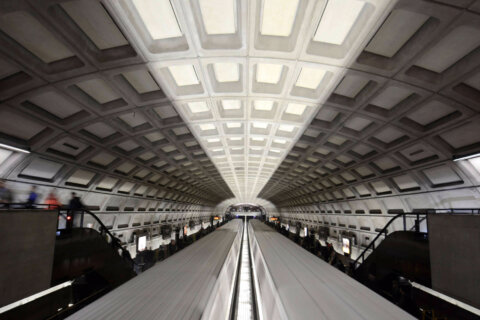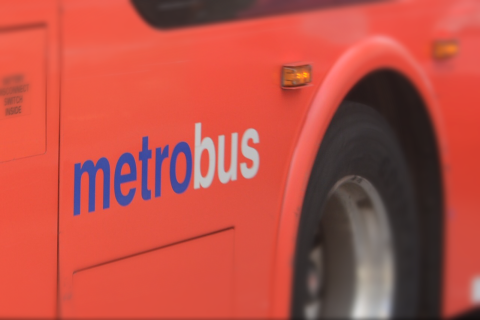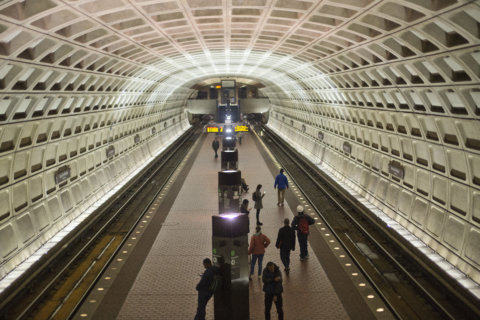Changes to Metro maintenance are a major driver behind plans to bring back some late-night service.
“We think we are now in a place where we can propose an increase in service hours that will not degrade safety or reliability significantly,” rail chief Laura Mason told the Metro Board Thursday.
Metro General Manager Paul Wiedefeld’s budget proposal calls for new 2 a.m. closings Friday and Saturday nights plus a return to midnight closings Monday through Thursday after minimal marginal gains from an 11:30 p.m. closing time.
Service hours were cut starting in 2016 when Metro said it needed more maintenance time to get things done. Additional changes were made in 2017.
“We need to increase the productivity of our crews, increase the efficiency of our right of way access and increase the effectiveness of work. All of these together are what enable us to increase service without compromising safety or reliability,” Mason said.
So far, Metro credits new or significantly improved maintenance programs along with cuts to scheduled train frequencies for a drop in track problems and other disruptions over the last two years and an increase in the number of riders Metro tracks as arriving on time.
The maintenance programs remain under constant review, and Metro has already significantly changed initial plans for track bed torquing and tamping.
The agency continues work to figure out the most effective way to test for stray current issues that can contribute to fires or cause parts of the tracks to wear out much more quickly.
Adding the extra service hours will require one or two more single-tracking or shutdown zones after 10 p.m. each night, on weekends, and a return of track work on Friday nights.
Those work zones are already much more useful than just a few years ago, Mason said, now that Metro does a more extensive planning effort to improve efficiency and put other crews in the same work zone to prevent another shutdown a few weeks later that could have been avoided.
“We will always seek to minimize the impact to customers,” Mason said.
Among other efforts to get work done, Metro is trying to get crews out onto the tracks faster with less time waiting for permission to access the tracks or power down.
Still, Wiedefeld said Metro staff “could not accept” a full return to previous hours of 3 a.m. closings Friday and Saturday nights and 7 a.m. to midnight service Sundays. Today, trains only run between 8 a.m. and 11 p.m. on Sundays.
Maryland Metro Board Member Michael Goldman hopes to end the annual reviews of the hours, but several other board members and the general manager said things are still in flux.
“I don’t think we have to lock into … an hour that it’s 2 and it’s 2 forever, because it could go either way,” Wiedefeld said.
The District has pushed hard for the extended hours, which would benefit riders across the region, and D.C.’s insistence that the hours cuts be reviewed each year has forced a closer look.
Maryland Transportation Secretary Pete Rahn challenged the new proposal at Thursday’s finance committee meeting, saying extra hours are simply “so that D.C. can extend the hospitality hours.”
“I don’t think, Pete, that that is accurate,” D.C.’s Tom Bulger responded. “The regional hospitality industry does not end at the District of Columbia’s border.”
Metro Board Chairman Paul Smedberg, a Virginia appointee, agreed with Bulger.
“It’s more than just a benefit to one jurisdiction,” Smedberg said.
“We have to look at how the region is growing, and where new activity centers are,” Smedberg added.
If hours are extended, Metro staff said the limited additional bus service added in 2017 to help some of the riders cut off by the early closings would be canceled.
It is unclear whether a newer, small Metro pilot program to pay a small share of a Lyft ride for certain eligible riders would continue.
Any changes adopted in the current process would begin around July 1, 2020.
Metro Board votes ares expected this winter.







